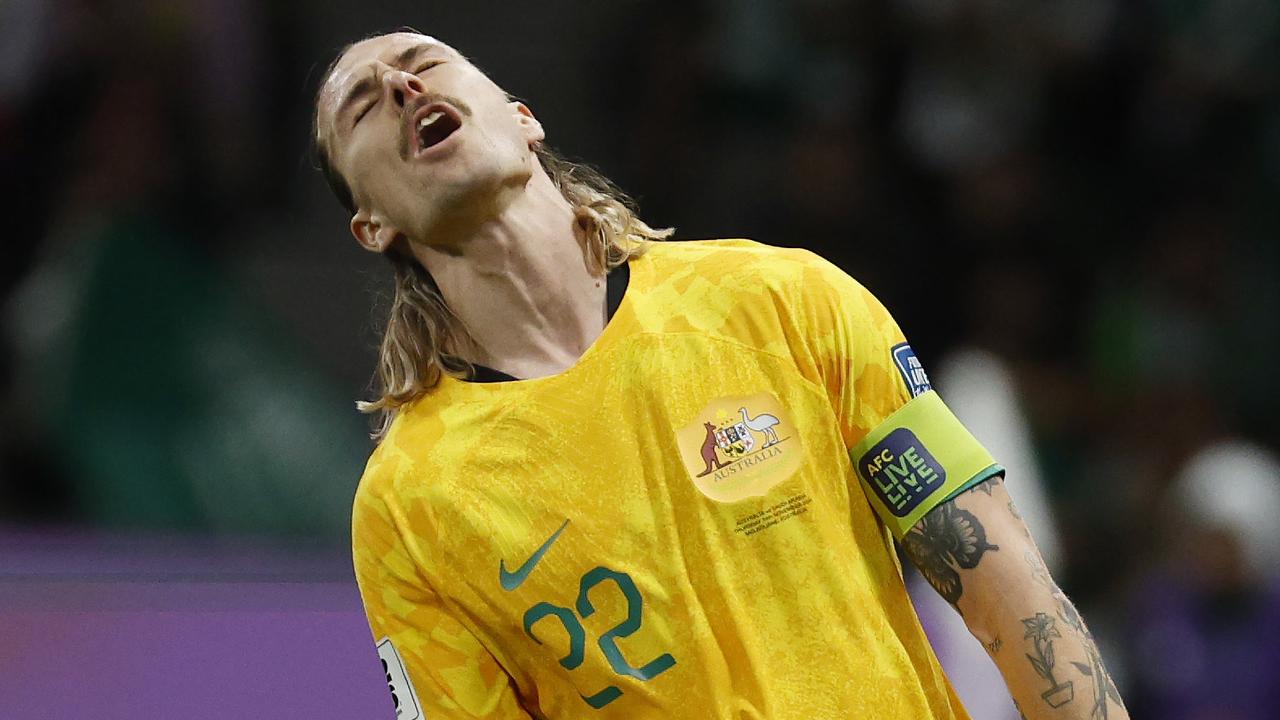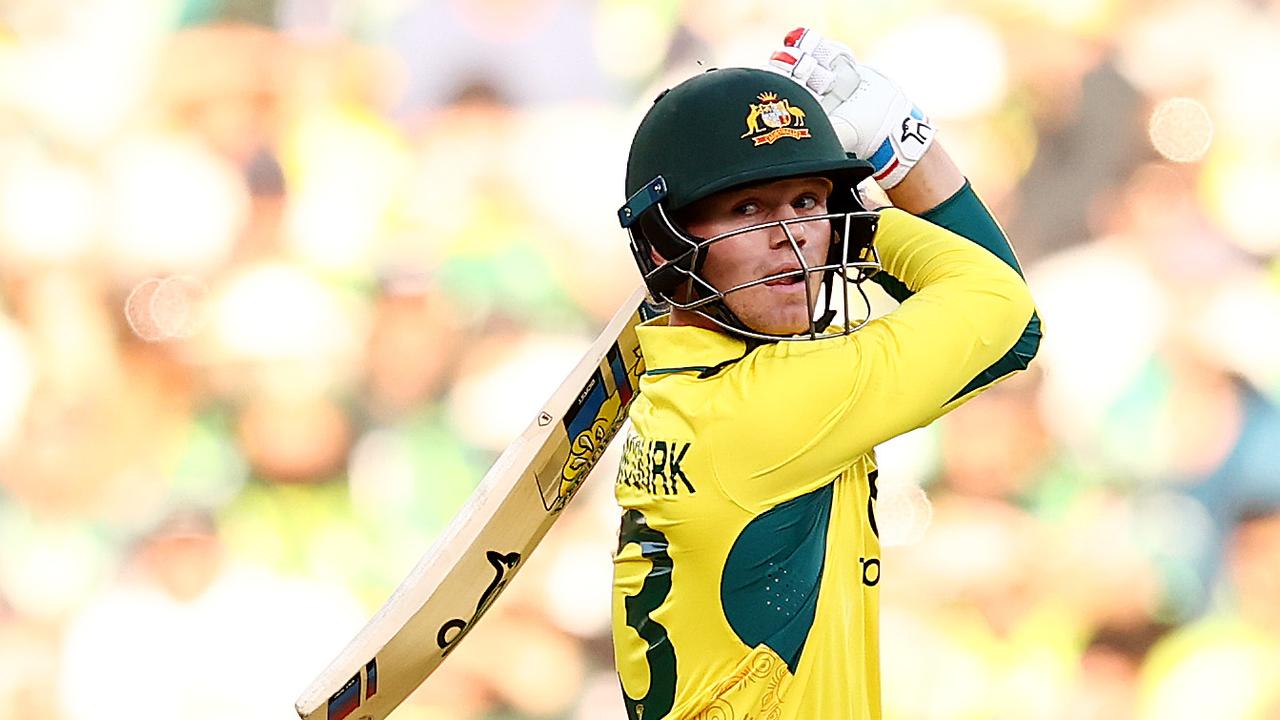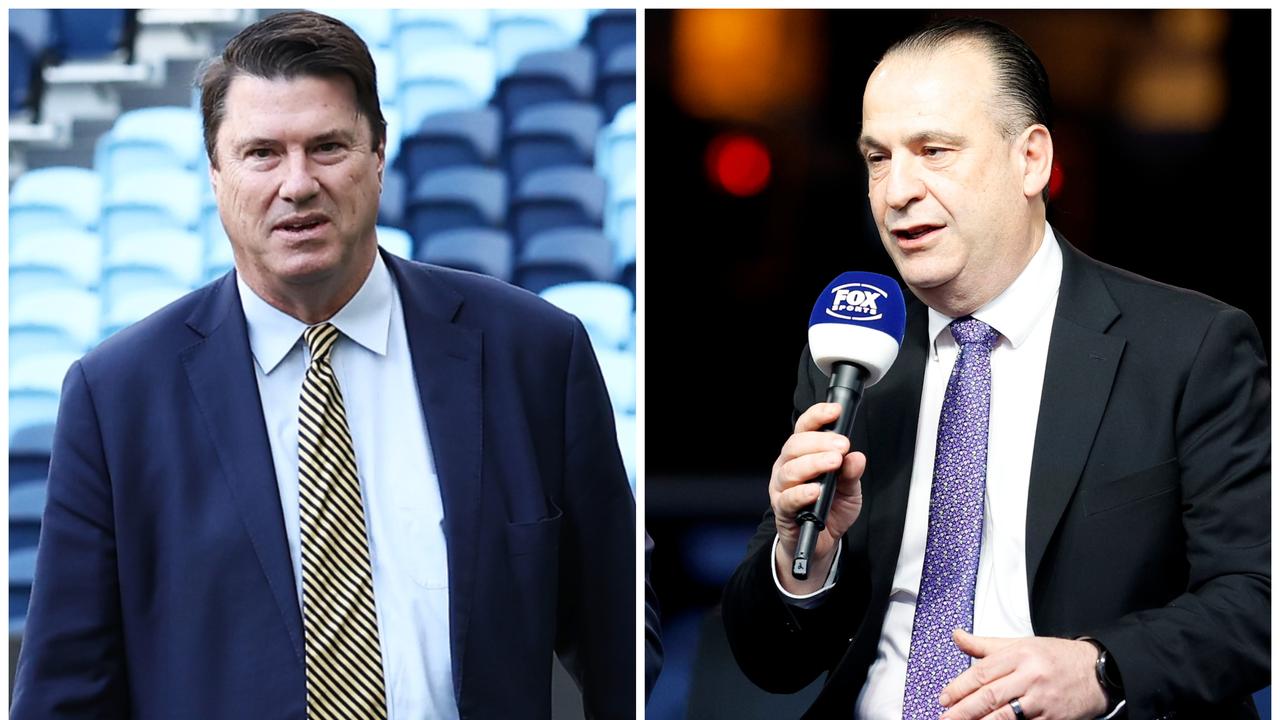Ex-footballer told his brain resembles a car-crash victim’s after 20 concussions

- by Admin
- October 31, 2024
By the time Luke Ivens retired from playing Australian Rules football, he had suffered “up to 20 concussions” playing the game he loved.
The 41-year-old says his worst concussion saw him blacked out for seven minutes.
“I was getting a bit of those dizziness and nausea symptoms but I really thought that if I rested throughout the off-season, I’d be fine,” he told ABC Science’s Listen Up.
“I noticed a few symptoms such as social anxiety, headaches started happening as well. I struggled to retain information.”
Towards the end of his career, however, Luke had begun to notice symptoms he hadn’t experienced before.
“I didn’t even want to walk into the clubrooms. I was so anxious and socially on edge,” he said.
“I’d have to start having a few drinks before I walked into a crowd of people.”
Most worryingly of all, he was struggling with short-term memory loss.
Luke once suffered five concussions over the span of 12 months. (ABC: Harriet Spark)
“I couldn’t even remember what I was having for dinner the night before. I just felt helpless and hopeless as a person.”
Scans would later reveal that Luke had a brain that, according to his neurologist, resembled that of a car-crash victim’s.
A second neurologist, this time in Sydney, said his brain looked like it had suffered 50 concussions, instead of the suggested 20.
“There wasn’t much education or insight into concussions,” said Luke of his playing days.
“My club doctor said, ‘Look, you’ll probably either retire or try wearing a helmet’. That [wearing a helmet] became my armour for the rest of my career.”
We now know that, while helmets can protect you from cauliflower ears, superficial lacerations and skull fractures, they don’t prevent concussions.
Search for answers
Growing up in Maitland on the Yorke Peninsula in South Australia, sport was a huge part of Luke’s life.
Luke played 194 games in the South Australian National Football League. (Supplied)
When he moved to Adelaide with his mum at 16, home was around the corner from North Adelaide’s Football Club.
It’s where Luke started his football career.
As a 19-year-old, and one of the youngest players on the field, Luke’s job as a tagger was to stop the opposition’s gun midfield.
An easy target because of his age, the “opposition would be quite physical”, said Luke.
He suffered five concussions that year alone.
“A week after, I would be straight back out on the field.”
Luke would go on to play 194 games in the South Australian National Football League, from 2000 to 2014.
Twenty years later, as Luke’s feelings of anxiety continued to spike, visits to specialists didn’t reveal the answers he was looking for.
Growing up in the country, sport was a huge part of Luke’s life. (ABC: Harriet Spark)
“No one really could tell me what was going on.
“I didn’t cope very well, to be honest. Probably about a year into having these symptoms I started going to a pretty dark place.
“My mental health really declined over that period.
“It just seemed like a vicious cycle of me using alcohol to combat my feelings and then waking up the next day, I couldn’t function properly as a father, as a person.
“I was probably at the point of losing everything, to be honest. My family, probably my work and probably my life.”
It wasn’t until Luke’s mum suggested that his concussions might be the cause, that a neurologist ordered brain scans.
“He likened my brain to a car-crash victim,” said Luke.
“He referred me to a neurologist in Sydney and after a few consultations with her she said, ‘Your brain looks like you’ve had about 50 concussions.'”
Luke was diagnosed with “probable CTE”.
Chronic traumatic encephalopathy (CTE) is a degenerative brain disease likely caused by repeated head injuries.
“People show up with different symptoms, like, some people have irritability and anger kind of problems. Mine showed up in the social anxiety and the headaches.”
According to Luke, he had hit rock bottom and out of “absolute desperation” asked his Sydney-based neurologist for help.
“She put me on some medication, which has really stabilised my symptoms. Social anxiety, we got on top of that. The headaches subsided with the medication.
“She also said, ‘You’ve got some effects [from repetitive brain injuries] but learn how to manage it properly, and you can hopefully live a normal life.'”
Speaking up and being honest
Since his diagnosis, Luke has found ways to get his life back on track.
Mornings consist of some form of fitness and alcohol is no longer the crutch it once was.
He’s also teamed up with the Concussion Legacy Foundation, last year speaking to 30 community sporting clubs about his experience.
“I left every single one of those visits feeling really great … I want my story to be one of hope rather than despair.”
And fatherhood continues to be his focus.
“I’ve got three young boys and I want them to grow up with a father they could be proud of.
Knowing he’s a good dad to his three boys brings joy to Luke. (Supplied)
“Back then I thought bravery was getting up and continue playing when you had a big hit.
“Bravery now is speaking up and being honest about your symptoms. We know too much about concussions now.”
The six-part drama series Plum follows Australian football legend Peter ‘The Plum’ Lum as he deals with the long-term impact of hundreds of head injuries and concussions suffered on the field.
Stream all episodes of Plum free on ABC iview or watch Sundays 8.30pm on ABC TV.
The Latest News
-
November 14, 2024Australian Dollar falls after jobs report
-
November 14, 2024Australian dollar falls after jobs report – MarketPulse
-
November 14, 2024Australia to make big tech liable for citizens’ online safety
-
November 14, 2024Australian Robinson Elected New World Rugby Chairman
-
November 14, 2024Top 5 fields for international students to secure jobs in Australia – VnExpress International






